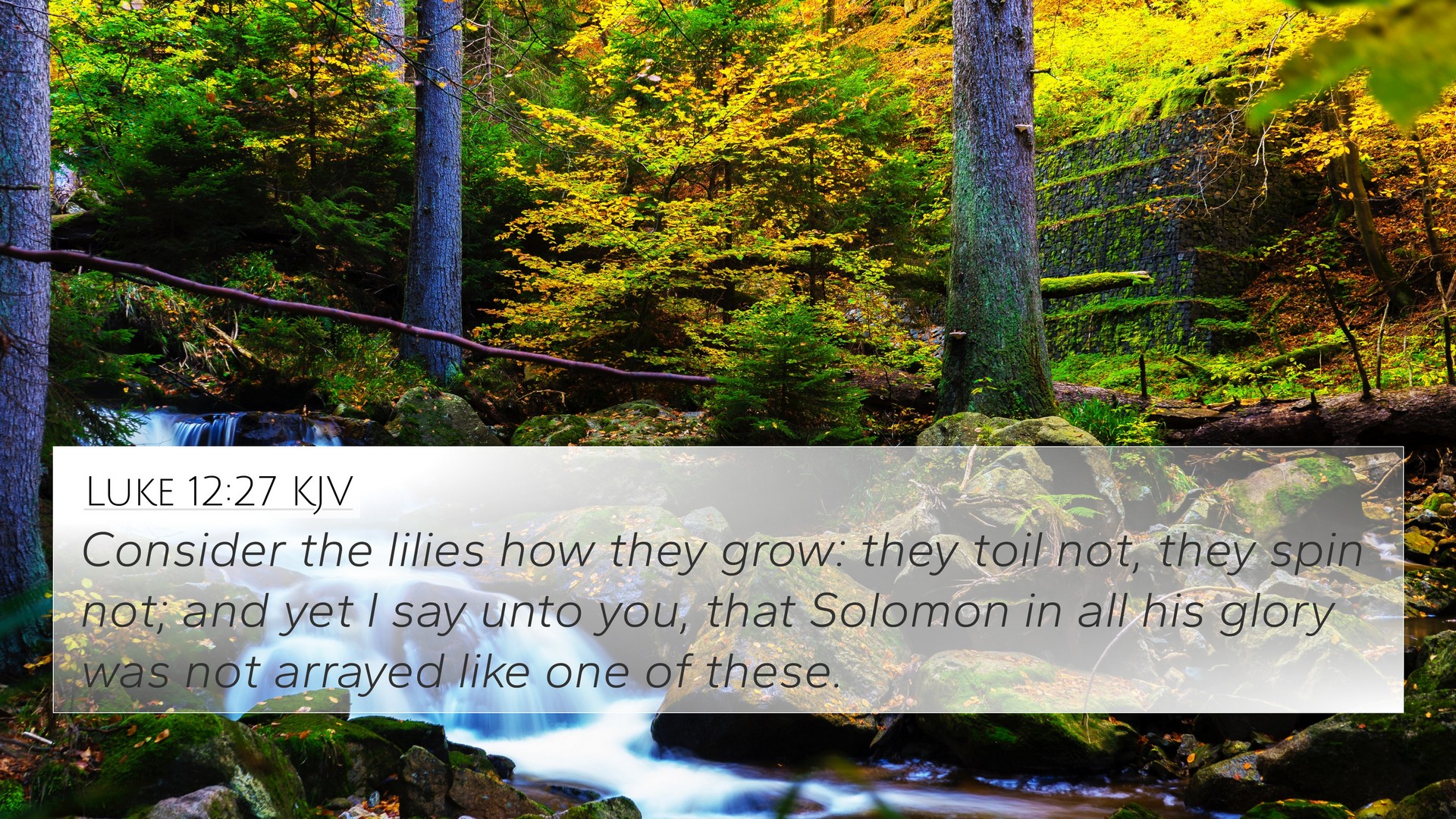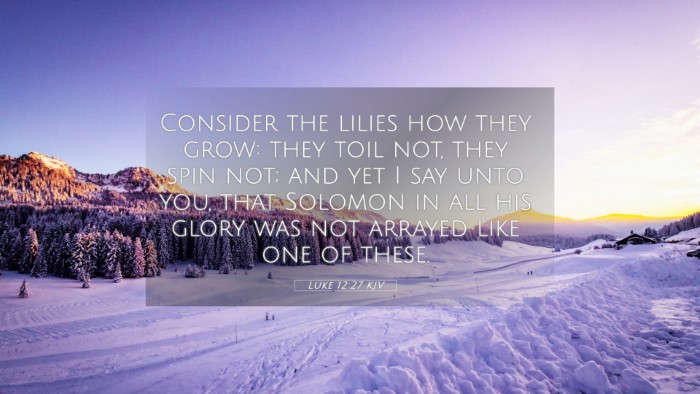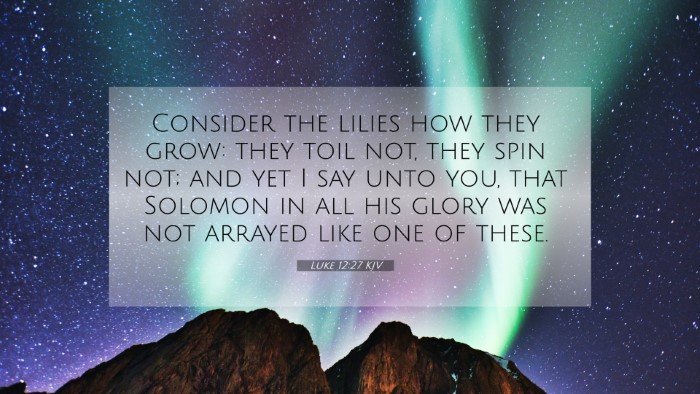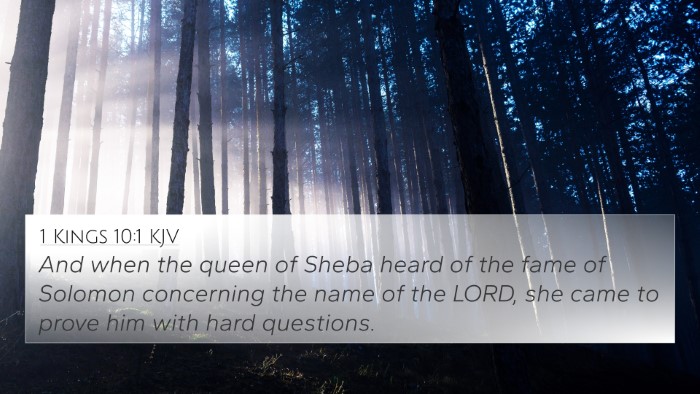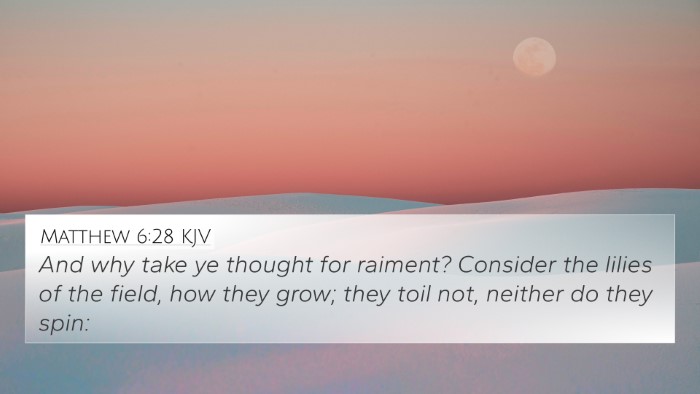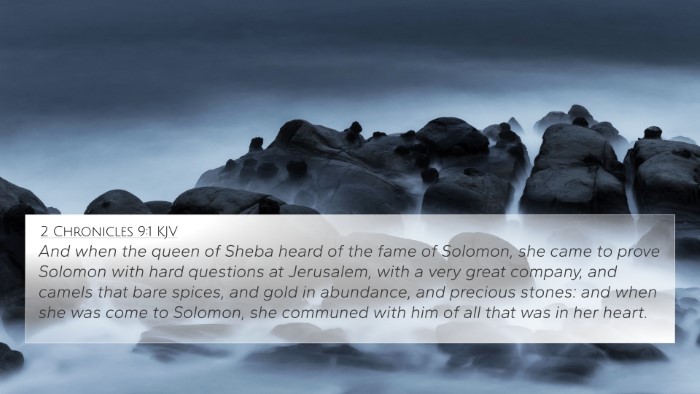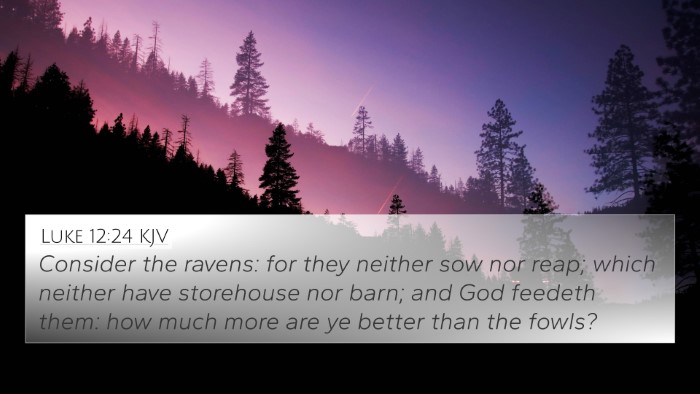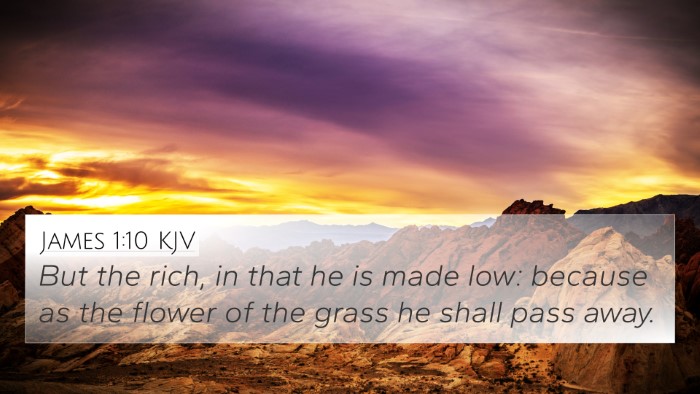Understanding Luke 12:27
Luke 12:27 states: "Consider the lilies, how they grow: they toil not, they spin not; and yet I say unto you, that Solomon in all his glory was not arrayed like one of these."
This verse invites readers to reflect on the nature of God's creation, particularly the beauty and care involved in what He has made. It emphasizes God's providence, also suggesting that human effort is not always necessary for beauty and abundance.
Verse Meaning and Insights
1. God's Care for Creation
Matthew Henry explains that the lilies grow without effort and are beautifully adorned by God. This teaches a vital lesson on trusting in God's provision, reminding believers that they are of far greater worth than flowers.
2. Comparison to Solomon
Albert Barnes emphasizes the contrast between the natural beauty of the lilies and the riches of King Solomon. Despite Solomon's wealth and splendor, the simple wildflower created by God surpasses it, highlighting the transient nature of human glory.
3. Spiritual Encouragement
Adam Clarke notes that the mention of lilies serves as a source of encouragement. If God can provide for the lilies, He surely will care for His followers. This encourages believers to relinquish anxiety over earthly concerns and trust in God's goodness and provision.
Cross-References
- Matthew 6:28-30: "And why take ye thought for raiment? Consider the lilies of the field, how they grow; they toil not, neither do they spin..." - This passage also speaks to God's provision and care for His creation.
- 1 Peter 5:7: "Casting all your care upon him; for he careth for you." - Emphasizes trusting God with our burdens.
- Isaiah 40:30-31: "Even the youths shall faint and be weary, and the young men shall utterly fall: But they that wait upon the LORD shall renew their strength..." - Encourages reliance on God rather than self-sufficiency.
- Philippians 4:6-7: "Be careful for nothing; but in every thing by prayer and supplication with thanksgiving let your requests be made known unto God..." - Instructs believers to bring their worries to God.
- Job 38:41: "Who provideth for the raven his food? when his young ones cry unto God, they wander for lack of meat." - Illustrates God's provision for all creatures.
- Matthew 10:31: "Fear ye not therefore, ye are of more value than many sparrows." - Affirms the high value God places on His people compared to His other creations.
- Luke 12:22-23: "Therefore I say unto you, Take no thought for your life, what ye shall eat; neither for the body, what ye shall put on..." - Reinforces the theme of trusting in God's provision.
Thematic Connections in Scripture
The themes in Luke 12:27 dynamically connect to various other scriptures throughout the Bible, reflecting concepts of divine care, trust, and the beauty of creation.
- Divine Providence: The idea that God provides for His creation is echoed throughout the Psalms, as seen in Psalms 145:15-16.
- Inward Peace: A thematic connection is found in John 14:27, where Jesus speaks of peace, which believers are to find in His presence as they depend on Him.
- Trust and Faith: Hebrews 11:1 emphasizes the importance of faith in God's promises, linking to the assurance provided in Luke 12:27.
Conclusion
The beauty of Luke 12:27 lies in its simplicity and profound message: God cares for His creation, and through this understanding, believers are encouraged to trust Him with their lives. As they study this verse, they can explore its connections and parallels with other scriptures, fostering a deeper understanding of God's providence and assurance in their lives.
Tools for Cross-Referencing
For further exploration and cross-referencing, believers can utilize tools such as:
- Bible concordance: To locate specific themes and words.
- Bible cross-reference guide: For understanding connections between verses.
- Cross-reference Bible study: Methods to deepen understanding through comparative analysis.
- Comprehensive Bible cross-reference materials: Resources to assist in thematic studies and connections across scriptures.
